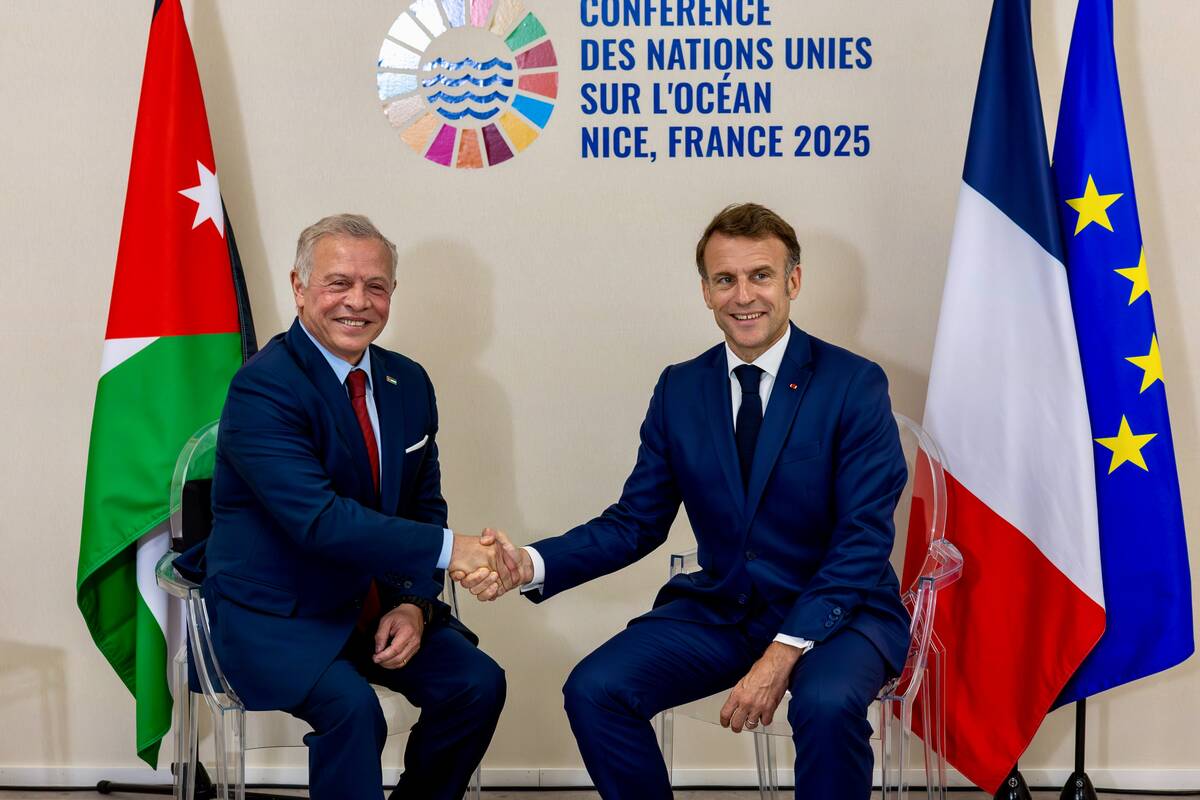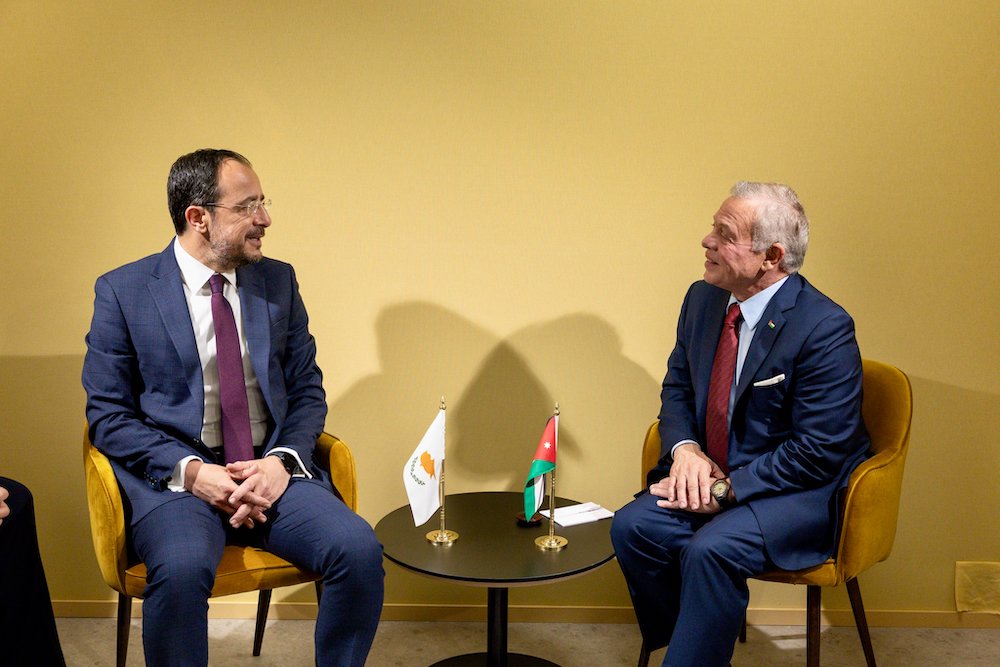LONDON: King Abdullah II delivered Jordan’s national address at the third United Nations Ocean Conference in Nice on Monday, underlining the urgent need for global action to protect oceans and marine life, the Jordan News Agency reported.
The week-long conference, co-hosted by France and Costa Rica, has brought together hundreds of international leaders, officials, and experts to address the pressing environmental challenges facing the world’s seas.
In his remarks, King Abdullah described oceans as “a vital shared resource, sustaining billions of lives,” but warned that they are increasingly threatened by climate change, pollution, overexploitation, and biodiversity loss.
“This is a critical moment in time for action,” the king added, stressing the need for international collaboration to preserve marine ecosystems.
King Abdullah highlighted Jordan’s embrace of science as a tool for transformation, noting that the Gulf of Aqaba’s coral reefs show exceptional resilience to extreme temperatures. This unique feature, he said, positions Jordan as a global hub for marine research that could help save coral reefs worldwide.
To advance this vision, he announced the launch of two key initiatives: Aqaba Blue Ventures and the Global Center for Ocean Regeneration.
These projects will provide platforms to test new technologies that can be scaled up for global application, he added.
On the sidelines of the conference, King Abdullah held a bilateral meeting with French President Emmanuel Macron, during which he affirmed Jordan’s readiness to strengthen cooperation with France across various sectors, JNA reported.

King Abdullah held a bilateral meeting with French President Emmanuel Macron. (JNA)
The leaders stressed the importance of maintaining coordination on regional issues and called for immediate international efforts to reinstate a ceasefire in Gaza and facilitate the entry of humanitarian aid.
The king warned of the dangerous consequences of continued escalation in the West Bank and Jerusalem, reiterating that granting Palestinians their full legitimate rights remained the only path to lasting regional stability.
He also commended France’s role in promoting peace in the Middle East, particularly through its upcoming international conference in New York from June 17-20, organized in partnership with Saudi Arabia.
The meeting was attended by Jordanian Foreign Minister Ayman Safadi and Jordan’s ambassador to France Lina Al-Hadid.
Also on Monday, King Abdullah held additional high-level meetings with Cyprus President Nikos Christodoulides, Prince Albert II of Monaco, and UN Secretary-General Antonio Guterres.

King Abdullah also held additional high-level meetings with Cyprus President Nikos Christodoulides. (JNA)
The talks were part of the king’s broader diplomatic efforts to mobilize international support for the rights of the Palestinian people.
During the discussions, King Abdullah again stressed that a two-state solution was the only viable route to regional peace and highlighted the importance of the forthcoming New York conference.
He also reiterated the need to restore the ceasefire in Gaza, guarantee unimpeded delivery of aid, and put an end to unilateral measures in the West Bank and Jerusalem.





























